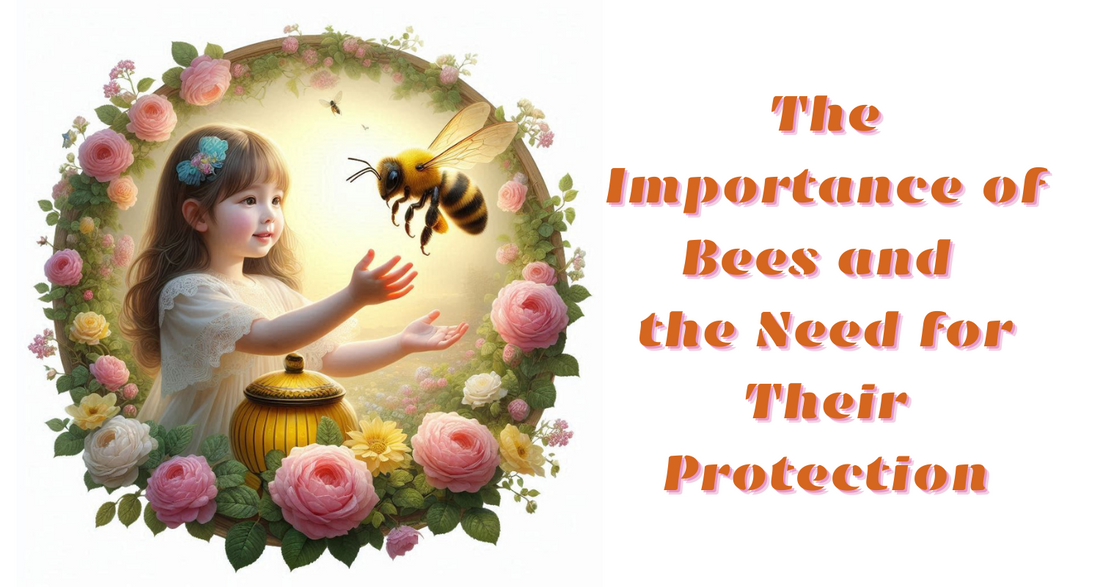World Bee Day is celebrated on 20th May each year.
We have been celebrating World Bee Day since 2018.
World Bee Day was initiated by the Republic of Slovenia, with the proposal being unanimously adopted by the United Nations General Assembly in December 2017. The date, 20th May, was chosen because it coincides with the birthday of Anton Janša, a Slovenian pioneer of modern beekeeping, born in 1734.

The day is celebrated globally with various activities aimed at raising awareness about the importance of bees and other pollinators. These activities include educational events, exhibitions, and campaigns highlighting the crucial role bees play in pollination, biodiversity, and food production. Beekeepers, environmental groups, schools, and community organisations often host workshops, honey tastings, and demonstrations of beekeeping practices to engage the public and promote bee conservation efforts.

The Importance of Bees and the Need for Their Protection
Bees, often taken for granted, are indispensable to our ecosystem and agriculture. Their role as pollinators makes them a critical component in maintaining biodiversity and securing food production. However, bee populations are under severe threat from various factors, making their protection more crucial than ever.

The Role of Bees in Pollination
Bees are primary pollinators for many of the world's crops. Approximately 75% of the leading global crops depend to some extent on animal pollination, with bees being the most effective agents. These include fruits, vegetables, nuts, and seeds, which are essential for human nutrition. The process of pollination involves bees transferring pollen from the male part of the flower (anther) to the female part (stigma), facilitating fertilisation and the production of seeds and fruit. Without bees, many plants would fail to reproduce, leading to decreased crop yields and higher food prices.

Biodiversity and Ecosystem Health
Beyond agriculture, bees play a vital role in maintaining biodiversity. They pollinate wild plants that form the basis of many ecosystems, supporting the food chains that include other insects, birds, and mammals. The presence of diverse bee species ensures the resilience of ecosystems against environmental changes. Different bee species have unique pollination methods suited to various plants, making the entire pollination network robust and adaptable.

Threats to Bee Populations
Despite their importance, bees face numerous threats that have led to alarming declines in their populations.
The primary threats include.
1. Pesticides:
Chemicals used in agriculture can be toxic to bees, affecting their ability to navigate, forage, and reproduce. Neonicotinoids, in particular, have been linked to bee population declines.

2. Habitat Loss:
Urbanisation, intensive farming, and deforestation reduce the availability of natural habitats and wildflowers, which are crucial for bees’ survival.
3. Climate Change:
Changes in temperature and weather patterns disrupt the blooming times of plants, leading to a mismatch between bees’ activity periods and the availability of flowers.
4. Diseases and Pests:
Bees are susceptible to various diseases and parasites, such as the Varroa mite, which weaken their colonies and reduce their numbers.
Importance of Protecting Bees
Protecting bees is not only about preserving a species but about securing the future of food production and biodiversity.
Here are some strategies to protect bees.
1. Sustainable Farming Practices:
Reducing pesticide use, adopting organic farming methods, and planting cover crops can create a safer environment for bees.
2. Creating Habitats:
Planting bee-friendly flowers and creating green spaces in urban and rural areas provide bees with foraging opportunities and habitats.

3. Supporting Beekeepers:
Beekeepers play a crucial role in maintaining healthy bee populations. Supporting local beekeepers by purchasing local honey and other bee products can contribute to their livelihoods and conservation efforts.

4. Raising Awareness:
Education and outreach programmes can inform the public about the importance of bees and how they can help protect them. Events like World Bee Day, celebrated on 20th May, are vital for spreading awareness and encouraging action.

Bees are essential to our environment and food systems, yet they are under significant threat. Protecting bees requires concerted efforts from individuals, communities, and governments worldwide. By adopting sustainable practices, creating supportive habitats, and raising awareness, we can ensure that bees continue to thrive and sustain the intricate web of life that depends on them. As we celebrate World Bee Day, let us remember the crucial role bees play and commit to their protection for the sake of our planet's future.
A charity organization supported by us, which was created to protect bees.

